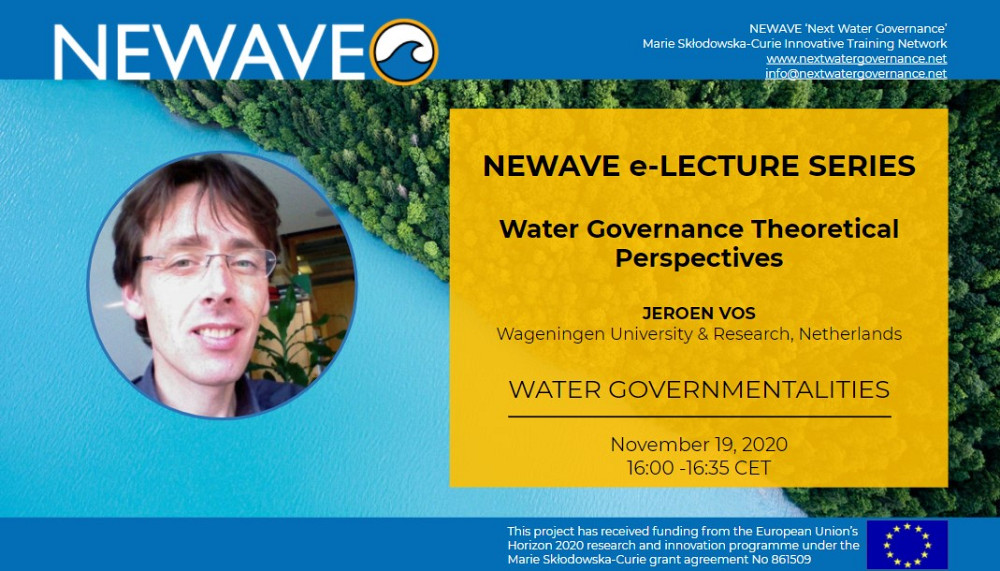NEWAVE e-Lecture Series: Water Governmentalities | Prof. Jeroen Vos
Water Governmentalities
Governmentalities are forms of governance defined by the French historian and philosopher Michel Foucault as “the conduct of conduct”. If comprises of many forms of “capillary power” through which people internalize norms, and behave accordingly. Foucault distinguished among four different forms of governmentality: (1) ‘according to immovable Truth’, (2) sovereignty, (3) disciplinary governmentality, and (4) neoliberal governmentality. Four examples of water governance ideas and practices will be analysed through the lenses of governmentality as examples. First, corporate water stewardship certification. Second, the offset of wetlands. Third, climate adaptation and irrigation efficiency improvement policies. Fourth, water transfers. A concluding remark will be made about contestation by the affected (and created) subjects.
References:
Robertson, M. (2015). Environmental Governance: Political ecology and the state. In: Perreault, T., Bridge, G. & McCarthy, J. (Eds.), The Routledge handbook of political ecology, 457-466.
Vos, J., & Boelens, R. (2014). Sustainability standards and the water question. Development and Change, 45(2), 205-230.
Hommes, L., Boelens, R., Bleeker, S., Duarte-Abadía, B., Stoltenborg, D., & Vos, J. (2020). Water governmentalities: The shaping of hydrosocial territories, water transfers and rural–urban subjects in Latin America. Environment and Planning E: Nature and Space, 3(2), 399-422.
Prof. Jeroen Vos
Jeroen Vos is Associate Professor of Water Governance in the department of Water Resources Management at Wageningen University, The Netherlands. As a water policy advisor he worked for a decade in Peru and Bolivia with different international development organizations. He was editor of two Spanish language books on water governance in Latin America and co-edited the Water Justice book published by Cambridge University Press in 2018. His current research interests are the dynamics and discourses of water use by agribusinesses in Latin America. He has published on the effects of virtual water trade and private water stewardship certification.
About the e-Lecture Series:
This online training module has the objective to engage the NEWAVESRs and the audience in different water governance perspectives. All lectures are open to the public upon registration.
Please register here
A participation certificate can be requested if attending at least 80% of the online public talks.
*All times are in CET (UTC+1)
We would love to know what you think! Please leave a comment below and engage in our online discussion group.




